More directly, I need more women in my Science Fiction. I am not referring to fictional characters within the pages. No. I mean I would like to see more women writers in the genre. I have not been able to find a current statistical number, but there seems to be a glaring discrepancy in the numbers between the genders of writers. This is even more evident in regards to the books “I” have read over the years. Granted my selection process may be imperfect, but from personal experience, I found two glaringly flawed reasons that framed my own library of books at an early age.
First: the few fantasy books that I had read when I was younger were all written by women (at least I think they were women). They were really good so it’s not my fault that my narrow mind automatically stigmatized fantasy and magic to female writers. Second: It seemed like most of the hard science fiction I enjoyed was the product of men writers (again, I think they were men). It was as though women didn’t share the same interest as the men.
I’m embarrassed to admit that I was wrong on both accounts. But upon further examination, I soon realized the significance of how pseudonyms can come into play. Before I go and point my finger at those influential publishers for swaying the market through author gender control to sell books, I have three fingers pointing right back at me for confirming their logic (see previous paragraph of my naive views). It is a vicious circle. The market tells me gender makes a difference so I believe the gender bias, and in turn the market believes its own propaganda because of sales…which I was a part of. So are there women authors out there? Are they part of some writer protection program shielded by people in dark suits doling out secret identities so they can work their craft in peace?
There are other reasons for pen names. Sure, an author may simply prefer anonymity (I don’t want my Mom to know I wrote that naughty sex stuff). The need for separation from previous work might prevent confusion from an established fan base (reading a romance novelist’s attempt at Science Fiction may not go over well). Name uniqueness is a concern of writers who want to stand out (Smith, Jones, Brown…hey wait!). Even ethnicity or a difficult name pronunciation can sway a change. There is also that ego thing. Over the years, the “pulp” angle of Science Fiction and Fantasy has often influenced established writers to resort to pen names in order to maintain their serious literary street cred. However, all of these reasons happen regardless of sex. So where are all of the women Science Fiction writers?
Gender swapping pseudonyms are not limited to Science Fiction. Mary Ann Evans wrote as George Eliot, Ann Rule went by Andy Stack, and Louisa May Alcott used the pen name A.M. Barnard. But in case you’re wondering, here are a few women genre writers you may be familiar with who published under masculine names:
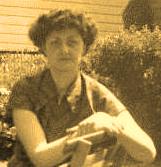
Andre Norton (SF, F) was actually Alice Norton
James Tiptree Jr. (SF) was actually Alice Bradley Sheldon
Magnus Flyte (F) is actually two women: Christina Lynch and Meg Howrey
Murray Constantine (SF) was actually Katherine Burdekin
Paul Ash (SF) is actually Pauline Whitby
Rob Thurman (SF, F) is actually Robyn Thurman
Tarpé Mills (Comic Artist) was actually June Tarpé Mills
Vernon Lee (SF) was actually Violet Paget
Not all pseudonyms are meant to pretend the author is a man. Heck, some men have non gender specific names already. Terry Brooks and China Mieville could easily be interpreted as female and they seem to do okay. Some pen names are merely a masquerade, like wearing a disguise at the costume ball in order to leave your true identity up to the audience. Here are a few veiled examples using just initials:
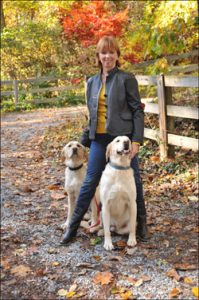
A. R. Long (SF) was actually Amelia Reynolds Long
C.J Cherryh (SF, F) is actually Carolyn Janice Cherry
C.L. Moore (SF, F) was actually Catherine Lucille Moore
J.D. Robb (SF) is actually Nora Roberts (Eleanor Marie Robertson)
J. K. Rowling (F) is actually Joanne Rowling
K.J. Taylor (F) is actually Katie Taylor
L. Taylor Hansen (SF) was actually Lucille Taylor Hansen
Despite the motive, there is still a sense of deception that could come back to bite the author in the end. I don’t care what the author’s name is as long as the work is good, but some readers might be turned off if they feel misled or betrayed. Hopefully it’s a small percentage, but it could still happen.
One could argue that the most essential tool in a superhero’s utility belt is their secret identity. If a pair of plain glasses can turn Superman into Clark Kent, imagine what a drastic thing like a name change could do for a writer. I once did a web search and discovered there are quite a few people out there who share my name. But what stood out most is the large number accompanied with police mug shots. My screen looked like a who’s who of Mos Eisley’s retched hive of scum and villainy. Suddenly this pen name thing doesn’t sound so bad. Maybe I should swap out my “y” for an “i” and become Ricki. Or would using my initials R.L. be enough of a change to separate me from Tatooine’s worst?
Wouldn’t it be wonderful if all literary work spoke for itself and we didn’t have to do all of this sneaking around? Surely the shortage of women writers in Science Fiction can’t solely be blamed on the use of pseudonyms, but it does play a role in the struggle to find some of them. Pen names might explain some of the discrepancy, but in the end there is still a large void that needs to be filled. My library is in dire need of some good hard Science Fiction written by women. Any suggestions would be greatly appreciated.


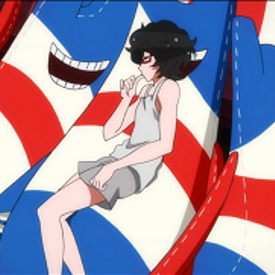



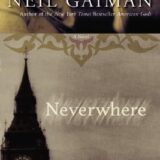
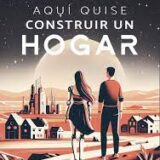



Thanks, Anat13, for the links to my site Worlds Without End. I will add that if you're wanting to read more women we're hosting the Women of Genre Fiction Reading Challenge on our site.
https://www.worldswithoutend.com/authors_wogf.asp
The challenge is to read and review 12 books by women authors you've never read before in 12 months. We have over 200 participants and just as many reviews already. Did I mention there were monthly Amazon gift cards up for grabs for the best reviews?
Oh, I'm not saying people should read an exact 50/50 split. That'd be demented!
No, I'm saying that as a "chooser", I did have to implement that strict rule for myself. Otherwise it was so easy to say "oh, I'm too tired to hunt out anything this month, we'll just go with Stephen King again". Before I decided on that rule, I was very aware of women authors, and would have considered myself to be picking lots of women for the book club… but when I crunched the numbers, I hadn't even hit 33%. I was shocked!
So now I have my Rule. And every month, even if I'm tired, or bored, or busy, I hunt out new women authors, and maybe take a chance on someone I haven't read before. And it is totally worth it 😀
Ha-ha! Sorry, with my reading idiocracies, I often reserve to the “demented” title for myself.
If more readers used your approach, perhaps we might not have quite the discrepancy in author genders we have today. You give me hope. Then again, we still have those pesky publisher standards to deal with!
About 18 months ago, after reading an article by Juliet E McKenna' about Genre review biases, I realised that as I pick the books for our local SF&F Book club, I was one of those people who influences who reads what. After I got over the very weird feeling this knowledge left me with, I realised I really had to make sure 50% of the books we read are by women. It has been hard, as while there are many genre books by women, finding ones that are in print has turned out to be a challenge, but most months I have succeded. The SF books and short stories by women we have read include:
Moxyland by Lauren Beukes
Frankenstein by Mary Shelley
Uncharted Territory by Connie Willis
Fool's War by Sarah Zettel
Star Hunter by Andre Norton
The Testament of Jessie Lamb by Jane Rogers
Across the Universe by Beth Revis
Fledgling by Octavia Butler (Vampires with a Science twist)
Misc short stories by Nancy Kress
Misc short stories by Aliette de Bodard
Good luck with your project!
I’m not sure constituting a 50% gender rule is necessary as long as the work is good. But it’s definitely a good idea to remain aware of the issue, so long as the choices do not sway drastically one way or the other.
Since many authors often venture into different genres, you've helped me realize that including specific book titles in your list helps a lot in the search for SF too. Thanks for your input Carol.
You touched on it briefly with China and Terry, but didn't mention that gender-neutral names work the other way around. Pat Cadigan has already been mentioned, but I'd like to recommend you check out Chris Moriarty.
Also, if hard SF is what you are after, Linda Nagata is well worth your time.
Wonderful! I’ll definitely check them out.
Thank you Cheryl.
And here's a very short recent article commenting that female authors are still often encouraged to use pseudonyms when their audience is expected to be primarily male (and vice versa for male authors writing for a primarily female audience). Quotes from publishers are included:
https://io9.com/5967253/female-science-fiction-and…
Thanks for the link. The notion that an “audience is expected to be” a specific gender is indeed unfortunate. Not sure if publishers are to blame or society in general.
Women in SF are not too hard to find–try googling "female science fiction authors list."
This site has a list of 90 of the greats:
https://www.worldswithoutend.com/lists_sf_mistres…
Here is another extensive list:
https://performativeutterance.wordpress.com/2011/0…
A Goodreads thread on the subject:
https://www.goodreads.com/topic/show/665317-women
List of award-winners in SF, fantasy, and horror, with references to other lists at end:
https://www.worldswithoutend.com/lists_women_winn…
And here is a list of a few of my favorites:
URSULA LEGUIN: 6 Nebulas, 5 Hugos, numerous other awards
– The Lathe of Heaven
– The Left Hand of Darkness
– The Dispossesed
– The Telling
NANCY KRESS: 4 Nebulas, 2 Hugos, Sturgeon Award, Campbell Award; https://www.sff.net/people/nankress/
– The Flowers of Aulit Prison (novella?)
– Margin of Error (short story)
– Beggars in Spain
-Probability Sun, Probability Moon, Probability Space
MAUREEN MCHUGH: Hugo and Tiptree awards, Nebula nomination
– Nekropolis
– China Mountain Zhang
– Mothers and Other Monsters
PAT CADIGAN: 2 Arthur C. Clark awards, several Hugo and Nebula nominations
– Patterns
– Mindplayers
– Synners
– Fools
KATE WILHELM: 3 Nebulas, Hugo
– Where Late the Sweet Birds Sang
– The Girl Who Fell into the Sky (novelette)
MARY DORIA RUSSELL, BSFA, Clarke award, Campbell for best new writer, Tiptree
– The Sparrow
OCTAVIA BUTLER: 2 Nebulas, 2 Hugos, Locus, SF Hall of Fame, McArthur "Genius" grant
– Patternist series
– Parable series
– Kindred
CONNIE WILLIS: 7 Nebulas, 11 Hugos, 4 Locus, Campbell
– Bellwether
VONDA MCINTYRE: 2 Nebulas, Hugo, Locus
– Dreamsnake
– The Moon and the Sun
NALO HOPKINSON: Locus, Campbell; Nebula nominations
– Brown Girl in the Ring
– Mojo: Conjure stories (editor)
More thoughtful and exciting authors whose awards I haven't looked up yet:
-Nicola Griffith
-Kelley Eskridge
-Karen Lord
-Jeanette Winterson
-Melissa Scott
-Marge Piercy
-Lois McMaster Bujold
Wow, thanks for the info. I’m familiar with a lot of these authors, but you list a quite few I’ve not heard of. I’ll have to check them out. This is greatly appreciated.
Granted there are many ways to search for female writers, but sadly even these extensive lists pale in comparison to the overall magnitude of published male authors.